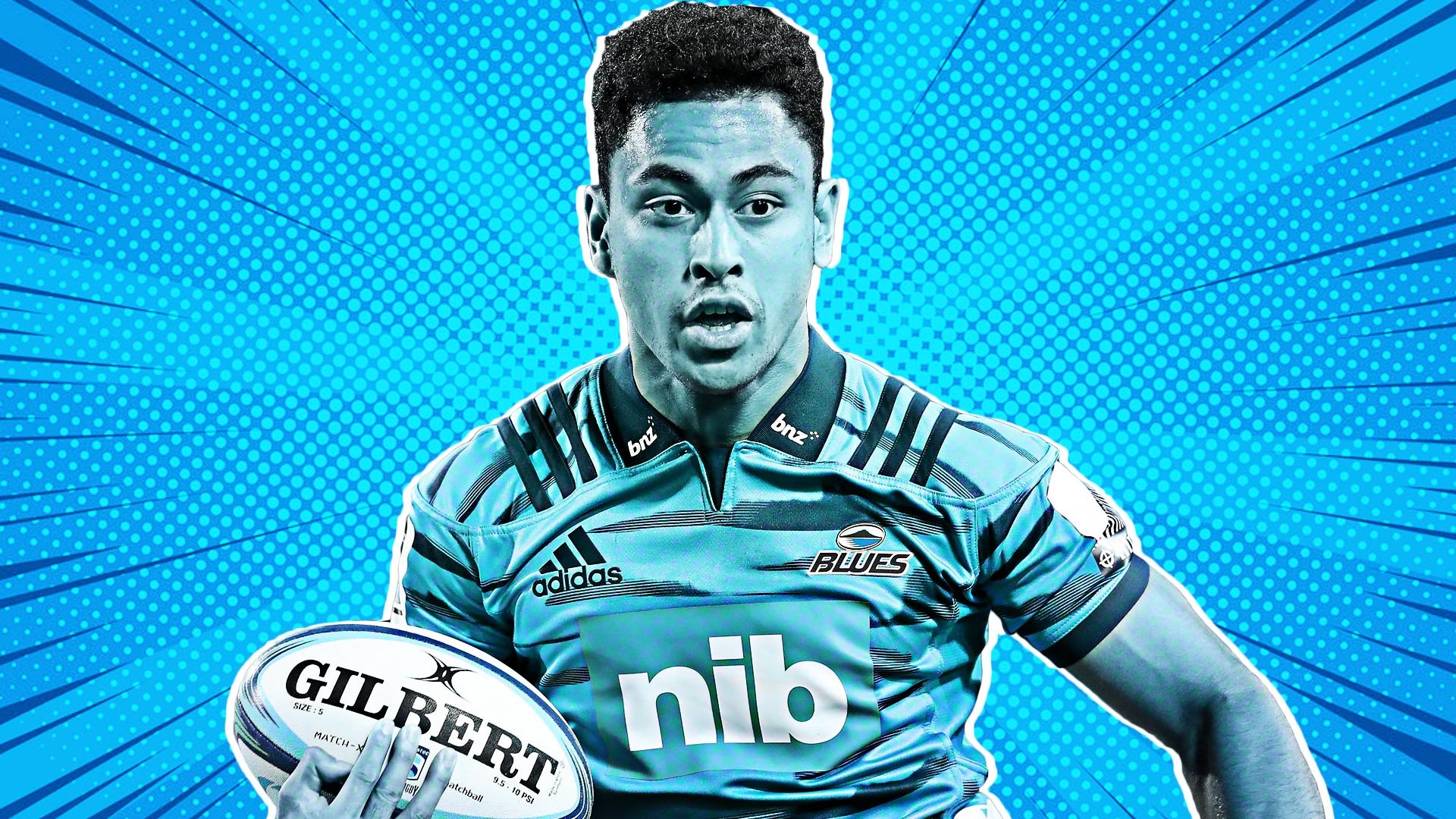The Blues Pero-future is here, and it's better than you think

Inside another lost Blues season lies the promising future of the franchise.
After years and years of searching for a quality first five-eighth, they just may have found one. A deeper look behind the surface reveals that 21-year-old Stephen Perofeta isn’t just a regular 10, he’s an attacking force in the making.
Is he still raw? Yes. Does he make mistakes? Yes. He’s not the finished product but neither was any rookie 10 in their first season of Super Rugby. He’s featured in 13 games this season, starting at first five-eighth 10 times.
His first appearance of the season came in the third match as Bryn Gatland’s replacement against the Lions in South Africa. He first took the field with the Blues down 28-10, and finished his twenty-minute cameo with the Blues winning their first game 38-35. He led a similar second-half fightback against the Stormers the next week which did enough to convince the Blues coaches to hand him the starting role. Outside of one start at fullback, he has played at first-five since.
Control and maturity will come with experience – his option taking has been a little bit wanting at times and his out-of-hand kicking isn’t reliable enough yet. What’s not debatable is his raw attacking ability – when compared to other rivals in his position, the young playmaker outranks nearly all of them.
To measure the efficiency or effectiveness of one’s playmaking or vision, we looked at run/pass totals and the line break/line break assist totals of each first five-eighth to determine who has the best conversion rate. Who is more effective at breaking line, rather than who breaks the line the most.
Those with the lowest ratios show the best return and present the biggest threat. Perofeta’s line break ratio of 5.92 is the best in the competition for a 10, ahead of Damian McKenzie (8.75), Beauden Barrett (9.63), Richie Mo’unga (12.33) and Lima Sopoaga (15.00). He will produce a line break roughly once every six runs, the most productive running game of any first five-eighth.
When it came to ball-playing efficiency, Perofeta ranked second in the competition with a line break assist ratio of 12.00. Only Yu Tamura of the Sunwolves had a better return (11.80), but he only played six games. Close behind Perofeta were the Crusaders pair Mitch Hunt (12.78) and Richie Mo’unga (12.92). The rest of New Zealand’s first fives were also in the top 10 – Lima Sopoaga (14.50), Damian McKenzie (14.55) and Beauden Barrett (15.79) but Perofeta was more effective than all of them.
Whilst the passing totals used to calculate the ratios don’t differentiate between shifting ball early or taking on the line, it does give some insight into ball-in-hand creativity. It also indicates that the Blues may be better served designing plays around Perofeta taking on the line, given that he shows exceptional ability in creating opportunities.
To understand just how good these numbers are, a comparison with fellow rookie first fives paints a better picture. South African stepping whiz Damian Willemse shows a decent LB ratio of 13.83 but a poor LBA ratio of 36.20, illustrating a lack of playmaking in his passing game. The Queensland Reds future flyhalf Hamish Stewart had an LB ratio of 17.0 and an LBA ratio of 29.0, which ranked in the bottom five in both categories.
The Blues have a natural attacking talent that doesn’t just blow his age-peers out of the water, but competes and betters the very best in playmaking efficiency.
You might be thinking that this attacking production is the result of risky play, and the flip side is a kid who is plagued by errors. Whilst he may make the wrong decision (for example, kicking when ball-in-hand looks promising), his actual turnover rate is surprisingly low at 3.13%. That’s better than Richie Mo’unga (3.58%), Beauden Barrett (4.07%), Damian McKenzie (4.33%) and Lima Sopoaga (5.24%).
Perofeta’s weakness is his kicking game, and the Blues have shied away from giving him too much responsibility in this area. He kicks half as much as Barrett or McKenzie, with a higher kick error rate than the two.
This will be an important development area for him, as without it he will never be able to control a game and close out wins with territorial kicking. What Barrett lacks in passing efficiency, he makes up for in predatory anticipation instincts and world-class out-of-hand kicking. He can pull a rabbit out the hat from anywhere, and dictate terms from the back with the boot.
At just 21-years-old Perofeta is the best prospect the Blues have had since Carlos Spencer, and after one season is already proving he will be a majestic playmaker like the King.
The Pero-future is here, and it looks good.
Related Coverage








































































































